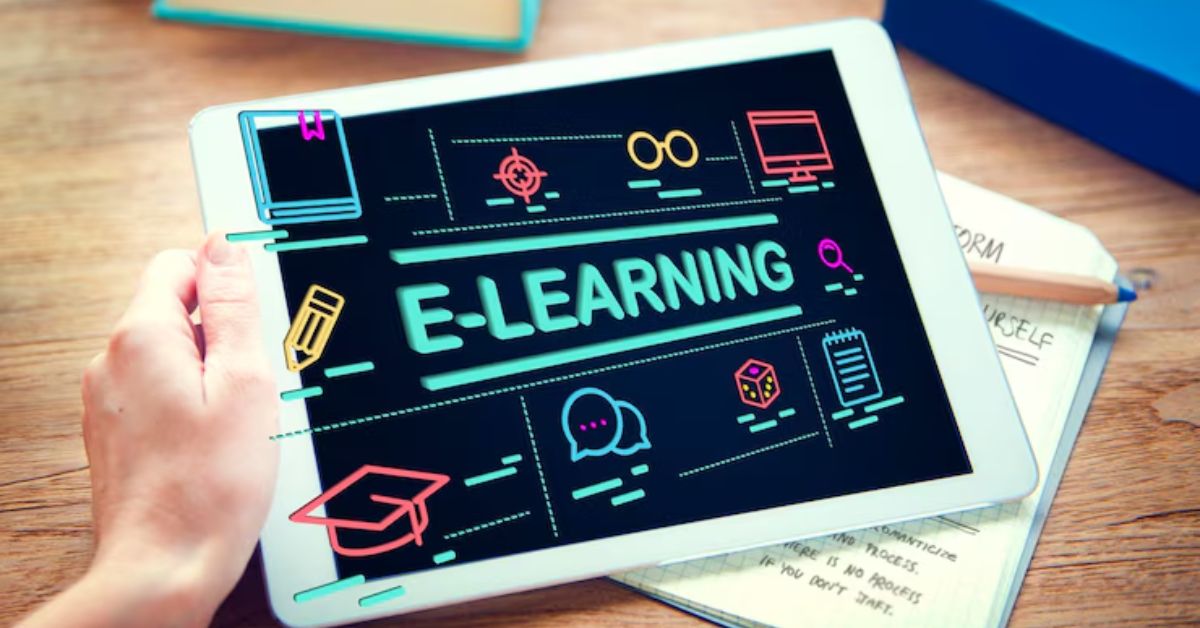Education
Innovative Approaches to Online Education: A Comprehensive Guide

Introduction to Online Education
The explosion of digital learning platforms has firmly positioned online education as a hallmark of modern schooling. It empowers those who traditional systems might underserve due to location, schedule, or specific learning requirements. Additionally, it offers solutions for lifelong learners who seek continuous education without disrupting their existing commitments. Online education is revolutionizing how we learn, providing students and parents abundant opportunities beyond the confines of a traditional classroom. With the burgeoning availability of free online school options, learners have unprecedented access to quality education right at their fingertips, giving them a sense of control and confidence in their educational journey.
In particular, regions with limited access to physical educational facilities benefit from online platforms that bridge the gap, delivering educational equity regardless of geographical boundaries. The digital realm presents diverse learning formats—live classes, webinars, recorded lectures, and interactive forums—creating a sense of community and connection, catering to various learning styles and preferences. This fosters a supportive environment for students and parents alike.
Benefits of Online Learning
One significant advantage of online education is its unmatched flexibility. Students can personalize their schedules, enabling them to incorporate education into their daily routines quickly. This adaptability is especially beneficial for the workforce and non-traditional learners who are balancing various responsibilities while aiming to advance their education.
In addition, online education makes personalized learning experiences easier. Digital platforms often use sophisticated algorithms to customize content according to individual performance, interests, and learning speed, in contrast to the standardized approach of traditional classrooms. This personalized method boosts understanding and ignites a more profound passion for learning.
Challenges and Solutions in the Virtual Classroom
Despite its innovations, online education presents its set of challenges. Social isolation can lead to feelings of loneliness and lack of motivation, digital distractions, such as social media and online gaming, and a lack of direct interaction can hinder student engagement. Addressing these issues often requires creative solutions. For instance, virtual study groups and interactive discussions can recreate the social experience of face-to-face learning, promoting camaraderie among learners.
Additionally, educators may leverage tools like real-time surveys and quizzes to keep students actively involved. By incorporating these interactive elements, learning becomes a dynamic rather than a passive experience, which aids in maintaining student motivation and interest.
Innovative Tools for Engaging Education
Technology is central to enhancing engagement in online education. The integration of gamification, for example, transforms traditional learning exercises into gamified experiences that make learning fun and rewarding. Educational technologies, as highlighted in educational technologies and trends, are pivotal to crafting interactive curriculums that captivate students’ attention and drive better academic outcomes.
The landscape of educational tools is ever-expanding, from augmented reality apps that bring abstract concepts to life to AI-driven platforms that ensure adaptive content delivery. These innovations are critical as they cater to diverse learner needs and foster an environment of inclusion and participation.
Strategies for Effective Learning at Home
Setting up a conducive study environment is crucial to achieving adequate learning outcomes at home. This involves minimizing distractions and creating a dedicated space for academic activities. A well-organized study area with the necessary tools and resources can significantly enhance concentration and productivity.
Time management is another critical factor. Students should develop a structured timetable, balancing academic tasks with breaks to avoid burnout. Various online tools, like educational videos, quizzes, and forums, enhance learning by offering more viewpoints and strengthening concepts.
The Role of Parents and Guardians
Parental engagement is frequently a critical factor in the achievement of students who learn online. Parents can offer support by keeping communication with teachers and motivating children to remain organized. Additionally, joining online parent-teacher conferences can assist parents in understanding their child’s development and providing appropriate help.
Motivating kids to establish and stick to a study schedule can promote self-control. Parents can provide support by establishing routines and setting realistic objectives to help students stay focused on their academic progress.
Staying Updated with Educational Trends
In this rapidly changing educational landscape, keeping abreast of the latest news on education technology trends is vital. Doing so enables students, parents, and educators to adapt swiftly to emerging opportunities that can enhance the learning experience.
Frequent updates and innovations in ed-tech present myriad resources for those willing to explore them. By staying informed, stakeholders can continuously integrate new tools and methodologies, ensuring a rich and adaptive learning environment.
Conclusion
Adaptive learning technologies are systems that adapt to the learning needs of individual students, providing personalized learning experiences. As we navigate the ongoing digital transformation of education, it becomes increasingly vital for learners and educators to stay informed and proactive. This awareness allows them to embrace the innovations reshaping the educational landscape effectively. By understanding the latest advancements—such as interactive platforms, adaptive learning technologies, and collaborative online tools—students can enhance their learning experiences while educators refine their teaching methodologies.
However, with these innovations come unique challenges, including engagement, accessibility, and technology proficiency. Recognizing and overcoming these hurdles enables both parties to implement strategies fostering resilience and adaptability. By exploring best practices and leveraging available resources, the journey through online education can transform into an enriching and fulfilling experience for all involved, instilling a sense of pride and accomplishment in students and parents.
With the proper attitude and encouragement, students can develop self-reliance and drive, as teachers can establish inclusive settings that accommodate various learning styles. In the end, accepting this transition to digital technology creates opportunities for learning and acquiring new abilities, preparing students for achievement in a constantly changing world.
Education
Boosting Sales in the Educational Sector With Bulk Journals

The educational sector is a hotspot for many businesses that sell school-related products. This includes stationery tools like paper, pens, and journals. Students, especially, love customized stationery. Not only that, but schools also often require standardized journals to be distributed to students. This is why the educational sector offers immense potential for businesses selling customized journals.
By understanding the buying cycles of educational organizations and offering competitive pricing, businesses can tap into bulk journals with the academic sector to make a proper profit.
Why Target Educational Institutions?
Schools and colleges have ongoing needs for journals, planners, and notebooks. These tools are essential for student organization, academic planning, and teacher lesson preparations. Custom bulk journals tailored to the academic year’s structure or student preferences are in high demand.
Targeting schools ensures steady bulk orders and helps businesses establish long-term relationships with institutions. A reliable supplier becomes a go-to partner for yearly procurement needs.
Understanding Academic Buying Cycles
Educational institutions often operate on strict schedules for purchases. The academic buying cycle typically aligns with school terms and fiscal budgets. Key periods include:
- Summer and Early Fall: Schools prepare for the new academic year and order student supplies.
- End of the Year: Teachers and administrators stock up for the next term or purchase gifts for staff appreciation.
Businesses targeting this sector should plan marketing efforts and promotions to align with these cycles. Advanced planning also allows institutions to budget for larger purchases.
Bulk Pricing Structures for Schools
Educational institutions are budget-conscious and prefer suppliers offering bulk discounts. Competitive pricing structures can set businesses apart. Key considerations include:
- Tiered Discounts: Offering discounts based on the quantity purchased ensures schools save more when ordering larger orders.
- Customized Options at Lower Costs: Providing customization at reduced rates for bulk orders increases appeal.
- Subscription Models: Some schools benefit from annual contracts, guaranteeing recurring business for the supplier.
Being transparent about pricing and offering flexible payment terms can help build trust with school administrators.
Specialized Academic Planners and Student Journals
Tailoring products to the needs of schools can significantly boost sales. Two popular products for educational institutions include:
- Academic Planners: Designed for students and teachers, these planners include class schedules, assignment trackers, and school calendar pages. Businesses can customize them with the institution’s name, logo, and colors.
- Student Journals: Durable journals suited for daily use are students’ staples. Customizable covers and inspirational designs make them appealing to learners.
Adding features like pre-printed timetables or motivational quotes can enhance the value of these products.
Tips for Selling Bulk Journals to Educational Institutions
- Highlight Durability: Ensure journals are designed to withstand daily student use.
- Offer Samples: Free samples allow schools to assess quality before committing to a large order.
- Emphasize Customization: Schools appreciate journals tailored to their branding and academic needs.
- Be Accessible: Establish dedicated communication channels to handle queries from busy school administrators.
Key Takeaways
Selling bulk journals to educational institutions requires understanding their unique needs, academic cycles, and budget constraints. Businesses that offer tailored academic planners, competitive pricing, and high-quality products can build lasting relationships with schools. By aligning with educational priorities, suppliers can secure consistent orders and establish themselves as reliable partners in the academic world.
Education
The Benefits of Completing Court-Ordered Courses Online: Convenience and Compliance

Introduction
In today’s digital age, fulfilling court-mandated educational requirements has never been more accessible. Online courses designed for court orders offer a streamlined way for individuals to accomplish their legal obligations while accommodating their busy lives. This format not only promotes efficiency but also ensures compliance with court mandates. With the rise of digital education platforms, individuals can now complete court-ordered classes without the logistical challenges that traditional classroom settings might pose.
Convenience of Online Learning
One of the most significant advantages of completing court ordered classes online is the unparalleled convenience it offers. Whether you must take a course on anger management, substance abuse, or any other mandated topic, online platforms provide a user-friendly interface that can be accessed anytime, anywhere. This eliminates the need to commute to a physical location, saves time, and reduces the stress associated with travel.
The digital approach allows participants to integrate learning into their daily routines, ensuring they meet their legal requirements without causing significant disruptions to work or family commitments. This convenience is a key factor in promoting adherence to court orders, as individuals are likelier to engage with a program that fits seamlessly into their lifestyle.
Flexibility and Accessibility
Flexibility is another hallmark of completing court-ordered courses online. With 24/7 availability, these courses empower learners to choose when and where they study. This adaptability is especially beneficial for those with varying work schedules, caregiving responsibilities, or other personal commitments that make attending traditional classes challenging.
Online courses also cater to different learning preferences. Interactive modules, videos, and quizzes allow individuals to absorb material in ways that resonate best with them. This variety can enhance comprehension and retention, ensuring participants meet legal requirements and gain valuable insights and skills.
Ensuring Timely Compliance
Meeting deadlines is crucial when it comes to court-ordered education. Online courses are structured to support timely compliance, often including automated reminders and progress-tracking features that help participants stay on schedule. These tools add a layer of accountability, ensuring that individuals can continuously monitor their advancement through the course.
Additionally, online platforms often provide immediate access to completion certificates once the course is finished. This prompt delivery alleviates concerns about documentation, allowing individuals to present proof of compliance to the court without delay. As a result, participants can fulfill their legal obligations with confidence and peace of mind.
Structured Curriculum and Support
While flexibility is a significant advantage of online courses, their structured curriculum ensures that all relevant material is comprehensively covered. These courses are meticulously designed to address the court’s specific requirements, providing a transparent roadmap for participants to follow.
Moreover, online courses frequently include access to support resources, such as knowledge bases and customer service representatives, who can assist with technical issues or questions about the course content. This support network can help participants navigate any challenges, further facilitating the completion of their court-ordered programs.
Privacy and Confidentiality
Privacy is a significant consideration for individuals enrolled in court-ordered courses. Online learning platforms typically offer a layer of confidentiality that traditional classrooms may not. Participants can work through sensitive material in the comfort and privacy of their own homes without the potential stigma of attending in-person classes.
This private environment allows individuals to engage more openly with course content, fostering a more thorough understanding of the material and encouraging personal growth. Furthermore, online platforms often adhere to strict data protection policies, ensuring that personal information remains secure throughout the course.
Conclusion
In summary, completing court-ordered courses online presents several compelling advantages that make compliance both convenient and feasible. The flexibility, accessibility, and structured support that online platforms offer ensure that individuals can meet their legal obligations efficiently and with ease. As more people turn to digital solutions for their educational needs, online court-ordered courses continue to prove themselves as a reliable and effective means of achieving compliance while fostering personal development.
Education
Navigating School Changes: Practical Tips for a Smooth Transition Mid-Year

Deciding to change a child’s school mid-way through the academic year is a decision that can carry substantial weight for many families. This choice often involves multiple personal, academic, or situational reasons, ranging from relocation due to job assignments to seeking a more suitable educational setting for the child. For those considering transfering schools, the process can initially seem overwhelming. However, with strategic planning and robust support systems, the transition can become a rewarding and positive experience that academically and socially benefits the child. This comprehensive guide explores the reasons behind mid-year school changes and the various challenges families may encounter. It offers pragmatic steps to ensure students adjust smoothly and thrive in their new educational environments.
Why Change Schools Mid-Year?
Families often consider switching schools in the middle of the year for many reasons. A typical driver is a geographical relocation due to new job opportunities or changes in family dynamics that necessitate moving. Additionally, educational motivations play a significant role; parents might search for schools offering specialized programs, advanced academic courses, or a focus on particular disciplines such as the arts, sciences, or sports. These driving factors highlight families’ need to evaluate the alignment of a new school’s offerings with the student’s passions and academic goals.
Social and emotional factors also compel school changes. A child might face unsupportive environments such as bullying, insufficient resources for learning disabilities, or lack of social connection with peers. For these reasons, families may seek more supportive, inclusive, and nurturing environments where their children can thrive personally and academically.
Common Challenges Faced by Families
Transitioning to a new school halfway through the academic year is no small feat and can be accompanied by various logistical and emotional challenges. From organizing new daily routines and understanding a different curriculum to the administrative paperwork involved in enrolling in a new school, the logistical components can be fairly demanding. These challenges necessitate meticulous planning and time management from all family members involved.
The emotional impact on children cannot be understated. Leaving behind established friendships and familiar routines can be a source of stress and anxiety. Kids must acclimate to new social dynamics, establish relationships with new peers, and navigate varying educational expectations. Parents should strive to monitor their children’s emotional well-being closely, maintaining open dialogues to reassure them that they are supported and valued during this transition.
The Benefits of Switching Schools
While the process involves challenges, changing schools can be incredibly advantageous under the right circumstances. A new school may offer previously unavailable opportunities, such as access to specialized courses, extracurricular activities, or unique educational philosophies that align better with a child’s strengths and interests. It can allow children to rediscover their potential and explore subjects and hobbies they are passionate about. Narratives abound of children who have relocated mid-year only to find themselves in environments where they truly excel and connect with peers with similar aspirations. This new setting might stimulate personal growth and academic achievement, opening doors to pathways that were previously out of reach in their former schools.
Preparing for the Transition
Preparation is critical to a smooth school transition. It begins by thoroughly investigating prospective schools to understand their culture, educational standards, and available resources. Scheduling visits to the new school can also provide a sense of familiarity and comfort. During these visits, engaging with faculty and staff to address any curriculum differences and gauge the support systems available for students is beneficial.
Involving the whole family in discussions about the potential change helps everyone feel invested in the decision. By doing so, children can express their thoughts and feelings regarding the move, reinforcing family bonds and giving a sense of ownership over the future.
First Days in a New School
The first few days in a new school are a critical period for setting the tone of the transition. Encouraging children to participate in school events, athletic teams, or clubs that reflect their interests can help them find common ground with fellow students and promote a sense of belonging. This participation fosters new friendships, builds confidence, and improves social skills. Parents can aid this process by ensuring their children have positive daily interactions, discussing their school day openly, helping to highlight positive experiences and offering guidance on handling any challenges they may encounter.
Supporting Your Child Academically
Ensuring academic continuity is essential during this time of change. It requires understanding the new school’s academic expectations and identifying differences in curricula. Regular parent-teacher conferences can be instrumental in establishing a line of communication between parents and educators, helping identify areas where a student may need extra support or enhancement. At home, creating a structured learning environment that mirrors school habits aids in maintaining consistency and stability. Recognizing and celebrating academic efforts can inspire students to tackle new educational challenges positively.
Handling Emotional Adjustments
It’s crucial to address the emotional health of children during a school change. Children might exhibit signs of stress or resistance, which is normal. Parents should keep an open line of communication, listening to their child’s concerns and validating their feelings. Resources like therapy or counseling services are beneficial if needed, offering a secure environment for learners to examine their feelings and cultivate coping mechanisms. Support systems such as peer mentorship programs or counseling can reinforce positivity and self-esteem, ensuring children have the tools to acclimate successfully to their new environment.
Long-term Considerations
The transition doesn’t conclude immediately; it’s an ongoing process that requires continuous support and adjustment. Regular check-ins with your child regarding their academic progress and social interactions can help identify lingering challenges. In summary, although switching schools mid-year can be demanding, it also offers a unique chance for children to embrace new experiences and achieve personal growth. With structured support and proactive involvement, parents can successfully guide their children through this transitional phase and harness the potential for a bright, fulfilling educational journey.

 Cartoon1 year ago
Cartoon1 year agoUnlocking the Potential of Nekopoi.care: A Comprehensive Guide

 Game1 year ago
Game1 year agoExploring Aopickleballthietke.com: Your Ultimate Pickleball Destination

 BUSINESS1 year ago
BUSINESS1 year agoWhat Companies Are In The Consumer Services Field

 BUSINESS11 months ago
BUSINESS11 months agoUnraveling the Mystery of 405 Howard Street San Francisco charge on Credit Card

 HOME IMPROVEMENT1 year ago
HOME IMPROVEMENT1 year agoVtrahe vs. Other Platforms: Which One Reigns Supreme?

 TECHNOLOGY11 months ago
TECHNOLOGY11 months agoThe Guide to Using Anon Vault for Secure Data Storage

 ENTERTAINMENT8 months ago
ENTERTAINMENT8 months agoUnderstanding Bunkr Album: A Comprehensive Guide

 ENTERTAINMENT1 year ago
ENTERTAINMENT1 year agoThe Epic Return: Revenge of the Iron-Blooded Sword Hound
















